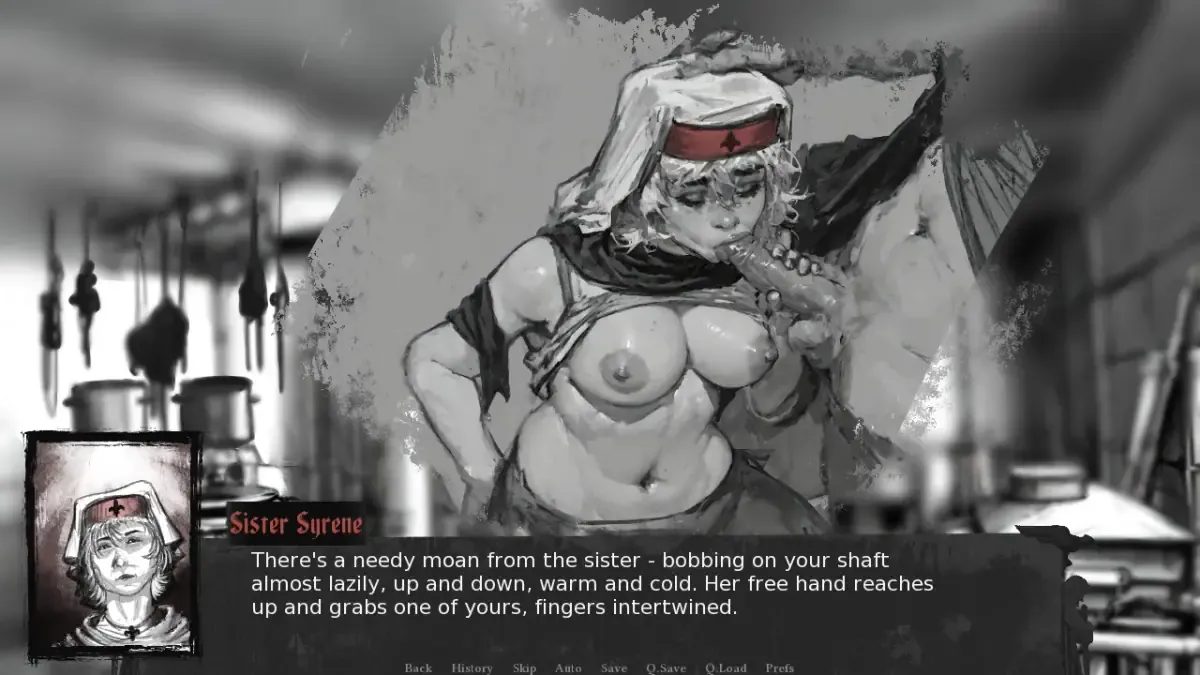
Project SAGE
Play Project SAGE
Project SAGE review
Explore Gameplay, Features, and Player Insights of Project SAGE
Project SAGE is a unique interactive game that blends narrative choices with immersive gameplay, offering players a distinctive experience. This article dives deep into Project SAGE, exploring its core mechanics, storyline, and what makes it stand out. Whether you’re curious about gameplay strategies or want to know what to expect, this guide covers everything you need to know about Project SAGE.
Understanding Project SAGE: Gameplay and Storyline
What is Project SAGE? Overview and Game Concept
Ever feel like most games just push you down a single track? 😩 Like your choices are just window dressing? That’s exactly where Project SAGE flips the script! 🤯 Imagine stepping into a rich, evolving world where every word you say, every action you take, genuinely matters. That’s the core promise of Project SAGE – a narrative-driven adventure where you are the author. ✍️
Project SAGE isn’t just a game; it’s a dynamic storytelling engine. You play as a pivotal figure drawn into a complex conflict shrouded in mystery and intrigue. The core concept revolves around agency. Forget predetermined endings; here, the Project SAGE storyline is a living tapestry woven from your interactive game choices. 🧵 Your personality, alliances, and the very fate of the world shift based on your path. Think less “choose your own adventure book,” more “build your own intricate novel.” 📚 It’s this deep commitment to player-driven narrative that truly sets Project SAGE apart in the RPG landscape. 🌍
Key Gameplay Mechanics and Player Choices
Okay, let’s get hands-on! The Project SAGE gameplay loop is beautifully intertwined with its story. At its heart are dialogue trees and action prompts that are far from superficial. 🗣️ Every conversation, every interaction, presents meaningful interactive game choices. These aren’t just “Good/Bad/Neutral” options slapped on; they reflect nuanced attitudes, tactics, and moral stances. 🧐
- Dialogue Depth: Conversations feel real. Choosing to be empathetic, confrontational, deceptive, or analytical doesn’t just change the immediate response; it shapes how characters perceive you long-term. One time, I lied to gain a minor advantage early on, only to have that character expose me at a critical moment later! 😳 Trust is earned (or burned) slowly.
- Environmental Interaction: Choices extend beyond talking. Deciding how to solve a puzzle, which path to explore first, or even whether to intervene in a conflict are all crucial player decision impact moments. Finding a hidden item might unlock a peaceful resolution hours later. 🔍
- Action & Consequence: Combat (when it occurs) often offers multiple approaches – stealth, diplomacy, brute force – each with distinct narrative ripples. Choosing to spare a defeated foe? They might become an unlikely ally down the line. ⚔️➡️🤝
The brilliance lies in how these mechanics feed into the game narrative progression. Your choices aren’t isolated; they compound, creating a unique story fingerprint. The game tracks your relationships, your reputation, and even subtle personality flags, constantly adjusting the world and dialogue options around you. It’s reactive storytelling at its finest. 💫
Here’s a quick look at how these mechanics interplay:
| Gameplay Feature | Effect on Narrative | Player Impact Example |
|---|---|---|
| Dialogue Stance Selection (Empathy, Logic, Aggression, Deception) | Shifts character relationships & unlocks unique story beats; influences faction reputation. | Consistently using Logic might make certain characters respect you but others find you cold. |
| Critical Action Choices (Save A or B, Pursue or Ignore) | Creates major plot divergences; determines which characters live/die, which locations become accessible. | Choosing to investigate a strange signal early might save a key character, altering the mid-game. |
| Exploration & Discovery | Unlocks hidden lore, alternative solutions, and character backstories; provides context for future choices. | Finding a lost diary entry might reveal a character’s hidden motive, changing how you interact with them. |
| Relationship Building | Deepens companion stories; unlocks loyalty missions and unique abilities; affects ending possibilities. | Investing time in a companion’s personal quest might gain you a powerful ally in the finale. |
Pro Tip: � Don’t rush dialogue! Take a breath and think about the kind of character you want to be. Project SAGE characters remember everything! That offhand sarcastic remark? It might just come back to haunt you (or endear you to someone unexpected!). 😉
Narrative Structure and Story Progression
Forget linear plots! 🚫 The Project SAGE storyline is a masterclass in branching story paths. Think of it less like a straight highway and more like a sprawling river delta. 🌊 Your early choices create significant forks, leading to entirely different locations, conflicts, and revelations. The game narrative progression feels organic because it’s built on the foundation of your actions. 🧱
- The Butterfly Effect: Small choices have big ripples. 🦋 That merchant you helped in the first town? They might show up later offering crucial aid or information. Ignoring a seemingly minor plea could close off an entire questline or ally faction. The game constantly reminds you that your world is shaped by your hands.
- Character Arcs & Relationships: The Project SAGE characters are incredibly deep, with their own goals, fears, and secrets. Your interactions directly shape their journeys. 💖 Building trust unlocks personal quests that delve into their pasts, offering powerful rewards and altering their role in the main plot. Conversely, betraying them can turn allies into bitter enemies with devastating consequences. I once alienated a key companion by prioritizing a faction goal over their personal crisis – they actively worked against me later, and it hurt! 😢
- Branching Endings: The culmination isn’t a single endpoint with minor variations. Major branching story paths converge and diverge throughout the entire game, leading to vastly different finales based on your alliances, key choices, and the fates of major characters. Replayability is immense because your second run can feel like a completely different story! 🔄
Pro Tip: 🧭 Embrace the unknown! Resist the urge to reload constantly (“save-scumming”). The true magic of Project SAGE lies in living with the consequences of your interactive game choices, even the unexpected or “bad” ones. It makes your story unique and deeply personal. Seeing how a mistake or a bold gamble plays out is often more rewarding than achieving a “perfect” run. Sometimes the most memorable moments come from unintended paths! ✨
Project SAGE gameplay thrives on this intricate dance between player agency and narrative consequence. It’s a game that respects your intelligence and rewards thoughtful engagement. The rich tapestry of the Project SAGE storyline, woven through countless branching story paths and shaped by profound player decision impact, creates an experience that feels uniquely yours. 🎁 Dive in, make your mark, and see where your choices lead! The world of Project SAGE is waiting for your story. 🌟
Project SAGE offers a compelling blend of interactive storytelling and gameplay that invites players to explore diverse narrative paths shaped by their choices. Its unique mechanics and engaging storyline make it a memorable experience for those seeking immersive gameplay. If you’re interested in games that combine narrative depth with player agency, Project SAGE is worth exploring. Dive in and discover the many possibilities awaiting you.











